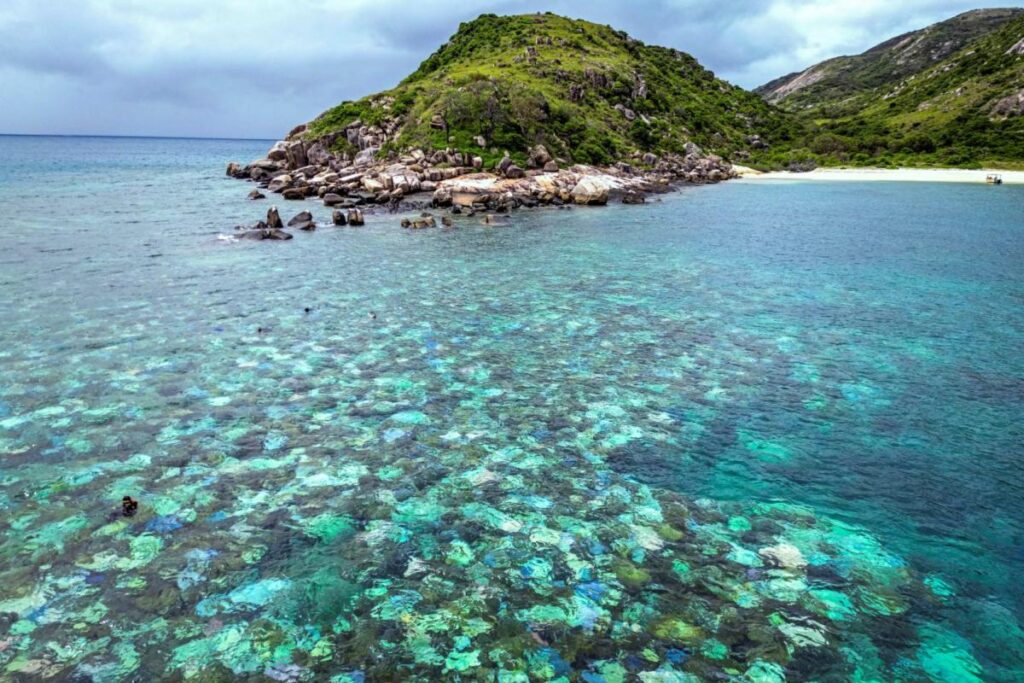Nova, an Australian commentator, has repeatedly the significance of mass bleaching was ignored and acidification about oceanic ecosystems over the years.
Her latest claims are misleading, maritime experts told AFP.
“Any claim that the reef is currently in its best condition is incorrect, especially given the recent bleaching that has affected many areas, including the southern Great Barrier Reef,” it said Peter Mumby from the University of Queensland Centre for Marine Sciences 8 July (archived here).
The world’s largest coral reef system has suffered what scientists are calling the worst bleaching event on record during the summers of 2023 and 2024as water temperatures rose and corals emitted microscopic algae to survive.
Extreme bleaching that has affected more than 90 percent of coral cover has occurred in all three regions of the Great Barrier Reef this year (archived hereThe phenomenon is linked to ocean temperature records and has occurred five times since 2016. strengthens Through man-made global warming (archived here).
Jonathan WALTERJean-Michel CORNUAFP
Pending 2024 data
Nova cites official data from the Australian Institute of Marine Science (DOES) support her claim of “record growth” of coral cover by 2024.
However, an AIMS spokesperson told AFP in a July 9, 2024 statement that such references are misleading, as the agency has not yet provided final data for this year. The report is due to be published in August.
The maritime authorities have executed partial investigations (archived) here), but AIMS said most of the data collection for the 2024 report will precede the peak in thermal stress in the region — an episode the agency described as “one of the most extensive and severe on record.”
The spokesperson said “the mass bleaching process is not over yet” so it is too early to know the full outcome effect.
“AIMS survey teams will return to the water in September and any impacts of the 2024 coral bleaching event on coral cover will be reported in our annual coral cover report in mid-2025,” the researchers said.
John SAEKIAFP
Data analyzed by the Global Coral Reef Monitoring Network, show a downward trend in the amount of coral on reefs between 2009 and 2018 (archived here).
“This loss is the result of the cumulative effects of past coral bleaching events and local pressures such as pollution, coastal development and overfishing,” the AIMS spokesperson said.
Jen McWhorter, a researcher at the National Oceanic and Atmospheric Administration’s Atlantic Oceanographic and Meteorological Laboratory (archived here), said on July 10 that any increase in coral cover “is likely to come from branching coral and is not representative of reef recovery as a whole.”
Broad implications
Sally Keithsenior lecturer in marine biology at Lancaster University in the UK (archived here), said coral cover is a “simple measure” that does not reflect the effects of mass bleaching and mortality on different species.
“Coral composition is important for ecosystem functioning and baseline biodiversity,” she said July 10.
Reefs have existed for millennia, but researchers are investigating the effect of bleaching on broader ecosystems.
According to Terry HughesDirector of the Australian Research Council Centre of Excellence for Coral Reef Studies (archived here), the key is to to research how “the mix of species found on or near reefs has changed in recent times time” (archived here).
The United Nations Intergovernmental Panel on Climate Change says that “further degradation of the reef as a result of future climate change now appears inevitable, with serious implications for other marine and coastal areas ecosystems” (archived here).
AFP has previously made other claims about Australia’s Great Barrier Reef And mass bleaching events.







